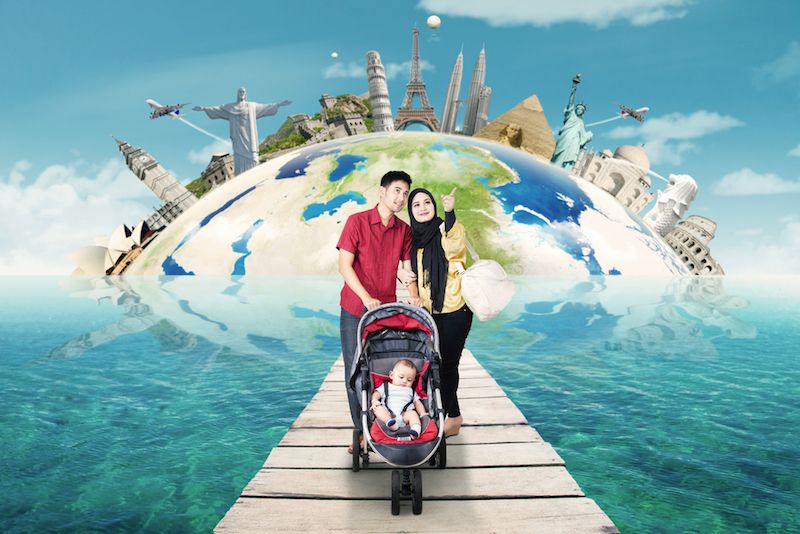
Is it better to be a Tiger Mom, or to bring up bébé the French way?
And is being a free-range parent, or a helicopter mom better for your kids well-being?
It turns out, the answers to those questions may depend on whether children call their mother Mama, Amma or Ima. New research suggests that what's best for kids growing up in one country isn't necessarily the ideal for kids in another, because cultural norms play a role.
Still, there are some universals.
"Parental warmth or love or acceptance is generally positive, all over the world," Jennifer Lansford, an author of the new research and a developmental psychologist at Duke University in North Carolina, told Live Science.
But even that love may be shown very differently to children in different cultures. Some parents show love with big bear hugs or a verbal "I love you," whereas others may use indirect language, or actions, such as making a child's favorite food, to show love. [10 Scientific Tips for Raising Happy Kids]
Parenting around the world
First-time parents are often bombarded with hundreds of opinions on the best way to raise a child, from whether to swaddle a baby or co-sleep, to exactly how to discipline their wayward teen. A few books in recent years have put forth the notion that American parents are "doing it wrong."
Sign up for the Live Science daily newsletter now
Get the world’s most fascinating discoveries delivered straight to your inbox.
For instance, "Bringing Up Bébé" (Penguin Books, 2014) argued that the French parenting style leads to polite children who will eat everything from escargot to braised leeks. In the memoir "Battle Hymn of the Tiger Mother" (Penguin Books, 2011), Amy Chua half-jokingly argued that she employed the strict, intensive parenting style more typical of Chinese parents in order to avoid having her children wind up as "soft, entitled," typical American children.
But does any one culture have a lock on the best parenting techniques? To get at the question, Lansford and her colleagues at the Parenting Across Cultures project looked at data from 13 cultural groups in nine countries: China, Colombia, Italy, Jordan, Kenya, the Philippines, Sweden, Thailand and the United States. The team looked at how parenting practices such as showing love and affection, yelling, shaming and timeouts were tied to behaviors such as aggression, anxiety and low self-esteem in children.
Love is love
They found that children who felt loved and accepted seemed to thrive, all around the world. However, the ways that parents expressed their love varied within each country.
Other factors of parenting, such as exerting a lot of control over a child, and very strictly adhering to rules, were associated with poor outcomes in some countries, but not others, according to a study that was published in the September issue of the journal Child Development Perspectives.
"In some places, such as Kenya, parents who seek obedience and compliance are typically the most loving and warm, and their children thrive," Lansford wrote in a blog post about the research that was published Aug. 1 on childandfamilyblog.com.
But in Europe and Sweden, parents who tend to be the most loving are also less controlling, she added.
The thorny issue of control
There are also different types of control. For instance, parents who seek to know where their children are, who their friends are and what they are doing tend to have healthier outcomes for their kids in many countries. But in contrast, when parents try to control how their child thinks or feels, they tend to have a more negative effect, Lansford told Live Science.
"If kids feel like their parents are conditionally loving them only if they agree with the parents, that's generally a bad thing," Lansford said.
There are also factors of a family's environment that can influence which parenting practices are best. For example, having more control over a child's behavior can be helpful when kids live in rougher neighborhoods, whereas it might be counterproductive in safer ones, she added.
Another example of the influence of a family's environment is that of immigrants to a country, who may also have different cultural norms than other parents around them. The children of immigrants may have a harder time if they see that there is a huge mismatch between their parents' parenting philosophies and those of the culture at large than they would if those same parenting practices were being used in their home country, where they are more common, Lansford said.
All in all, the findings highlight the idea that people shouldn’t be so quick to judge the parenting practices of other groups, she said.
"At least there can be some more open mindedness about trying to understand different people's perspective," Lansford said.
Original article on Live Science.

Tia is the managing editor and was previously a senior writer for Live Science. Her work has appeared in Scientific American, Wired.com and other outlets. She holds a master's degree in bioengineering from the University of Washington, a graduate certificate in science writing from UC Santa Cruz and a bachelor's degree in mechanical engineering from the University of Texas at Austin. Tia was part of a team at the Milwaukee Journal Sentinel that published the Empty Cradles series on preterm births, which won multiple awards, including the 2012 Casey Medal for Meritorious Journalism.
Most Popular




